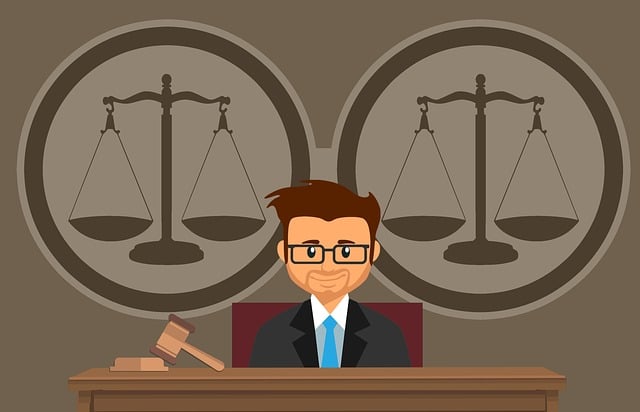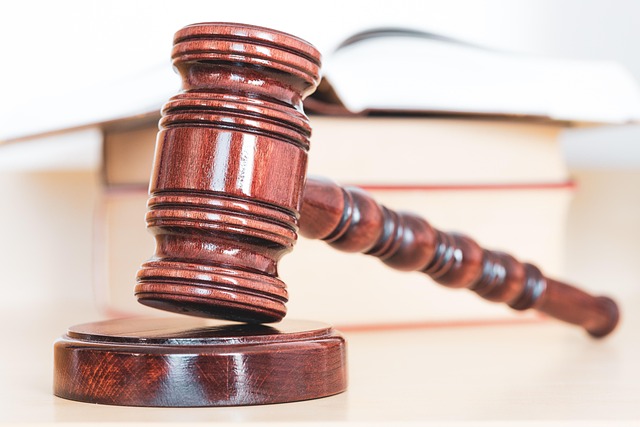Plea negotiations, a strategic process where defendants admit guilt for reduced charges, significantly shape trial outcomes. This alternative to trial offers mutual benefits to prosecution and defense, streamlining cases while setting precedents across diverse legal scenarios. Effective negotiation involves understanding each party's interests, resulting in beneficial agreements that save time, resources, and provide less stressful resolutions, ensuring justice is served.
“In the intricate dance of criminal law enforcement, plea negotiations stand as a pivotal strategy shaping trial outcomes. This article delves into the art of plea bargaining, exploring its role in mitigating legal battles. We analyze negotiation tactics employed by prosecutors and defendants, dissecting the impact of plea deals on sentencing decisions. Understanding the balance between concessions and going to trial is crucial, as illustrated through compelling case studies. Discover how these negotiations affect the course of justice and ultimately determine the fate of those involved.”
- Plea Bargaining: A Key Strategy in Criminal Cases
- Negotiation Tactics: How Prosecutors and Defendants Collaborate
- The Impact of Plea Deals on Sentencing Decisions
- Navigating Concessions: Pleas vs. Going to Trial
- Case Studies: Successful Plea Negotiations and Their Results
Plea Bargaining: A Key Strategy in Criminal Cases

Plea bargaining is a critical strategy in criminal law enforcement, allowing for efficient case resolution and significantly influencing trial outcomes. This process involves the accused pleading guilty to a lesser charge or accepting a negotiated sentence in exchange for a reduced penalty. It’s a win-win scenario as it benefits both the prosecution and defense; the former secures a conviction, while the latter avoids potentially harsher consequences. In the fast-paced world of criminal justice, plea negotiations play a pivotal role, especially in high-stakes cases involving corporate and individual clients.
The impact of these discussions extends beyond the immediate case. They set precedents, shape legal strategies for both general criminal defense and complex matters, and often determine the overall success or failure of law enforcement efforts. By carefully navigating these negotiations, attorneys can secure better outcomes for their clients while also ensuring that justice is served in accordance with the law.
Negotiation Tactics: How Prosecutors and Defendants Collaborate

Plea negotiations are a critical aspect of criminal law enforcement, often shaping the trial outcomes for both prosecutors and defendants. This collaborative process involves the defense attorney and prosecutor discussing potential agreements to resolve a case, avoiding the need for a full-scale trial. The defendant, weighing the potential consequences of going to trial versus pleading guilty, engages in negotiations to reach a plea bargain. These tactics can significantly impact the case’s trajectory, potentially leading to reduced charges or sentences.
Effective negotiation strategies focus on understanding the other party’s interests and motivations. Prosecutors aim to secure convictions while considering factors like the evidence strength and potential impact on victims. Defendants, on the other hand, seek favorable outcomes, often involving avoiding indictment or reducing penalties. This back-and-forth across the country, at all stages of the investigative and enforcement process, can result in mutually beneficial agreements, ensuring a more efficient and potentially less stressful resolution for both parties involved.
The Impact of Plea Deals on Sentencing Decisions

Plea deals play a pivotal role in criminal law enforcement, significantly shaping sentencing decisions. These negotiations between prosecutors and defendants offer an alternative to trial, allowing for more efficient case resolution. When a plea deal is reached, it often results in a reduced sentence or charges dropped entirely, compared to what might be expected at trial. This process can be particularly beneficial for both corporate and individual clients facing serious criminal allegations.
The impact of plea negotiations extends beyond immediate case outcomes; they also influence broader legal strategies and practices across the country. Achieving extraordinary results through these negotiations requires a delicate balance between securing justice, mitigating punishment, and considering the best interests of all involved parties. Effective plea bargaining can lead to more effective law enforcement by ensuring resources are allocated efficiently, while still holding offenders accountable for their actions.
Navigating Concessions: Pleas vs. Going to Trial

Navigating the concession process is a critical aspect of criminal law enforcement, where plea negotiations play a pivotal role in shaping trial outcomes. When a defendant decides to plead guilty, it often involves bargaining with prosecutors to secure a favorable sentence or even a complete dismissal of all charges. This strategic move can significantly impact the case’s trajectory, potentially saving individuals from harsh penalties and lengthy prison terms.
Plea negotiations offer an alternative to going to trial, allowing both parties to avoid the uncertainty and rigors of court proceedings. For corporate and individual clients alike, this process has proven to be a game-changer, resulting in unprecedented track records of successful outcomes. By entering into mutually agreeable pleas, defendants can achieve a balance between accepting responsibility for their actions and securing the best possible resolution, which may include reduced charges or alternative forms of punishment.
Case Studies: Successful Plea Negotiations and Their Results

Successful plea negotiations play a pivotal role in shaping the outcomes of criminal cases, especially in high-stakes scenarios. These strategic discussions between prosecutors and defendants offer an alternative path to trial, allowing for more control over the final result. By engaging in plea negotiations, both parties can avoid the time-consuming and often unpredictable nature of a full trial. This is particularly beneficial when considering the complexities and resources required at each stage of the investigative and enforcement process.
Case studies demonstrate that effective plea negotiations can lead to substantial benefits for all involved. For corporate and individual clients alike, this approach provides an opportunity to mitigate potential penalties and reach a mutually agreeable resolution. The results may include reduced charges, lighter sentences, or even the dismissal of certain allegations, depending on the specifics of each case. Such outcomes not only save time and legal fees but also allow defendants to move forward with their lives while ensuring justice is served.
Plea negotiations play a pivotal role in shaping the outcomes of criminal cases, offering both benefits and considerations. By examining plea bargaining strategies, understanding negotiation tactics between prosecutors and defendants, and analyzing the impact of plea deals on sentencing, we gain valuable insights into how these discussions can lead to successful resolutions. Through real-world case studies, it’s evident that strategic plea negotiations can result in favorable outcomes for all parties involved, often avoiding the lengthy and unpredictable nature of trials. Thus, understanding How Plea Negotiations Affect Trial Outcomes is essential for both legal professionals and those interested in criminal law enforcement.






